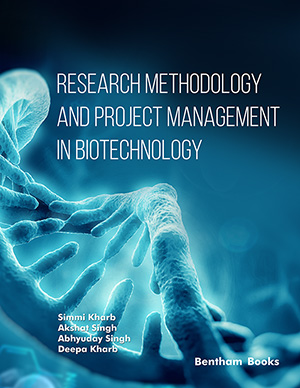
Abstract
Cellular and nuclear delivery of biomolecules is limited by low membrane permeability. Cell-penetrating peptides (CPPs) can be covalently linked to cargos to improve cellular internalization. Our work indicates that arginine-rich CPPs are also able to interact with a variety of cargos, including DNA, RNA, proteins and nanomaterials, in a noncovalent manner and subsequently effect their delivery into cells. The advantages of noncovalent attachment in CPP-mediated transduction are multiple: ease of use, ease of production, and versatility with respect to both cargo composition and functional delivery (i.e., the cargo is not chemically modified). We have extended this approach to achieve simultaneous transduction of covalently and noncovalently associated complexes, opening a new method for delivering multiple types of cargos, including proteins, fluorescent nanomaterials, nucleic acid and others. These novel variations of CPP-mediated transport should be of broad utility in the transport of genes, small interfering RNAs, proteins and nanoparticles in biomedical research and therapeutic intervention.
Keywords: Cellular internalization, cell-penetrating peptide, macropinocytosis, polyarginine, protein transduction domain, quantum dots.
Current Pharmaceutical Biotechnology
Title:Cellular Delivery of Noncovalently-Associated Macromolecules by Cell- Penetrating Peptides
Volume: 15 Issue: 3
Author(s): Microsugar Chang, Yue-Wern Huang, Robert S. Aronstam and Han-Jung Lee
Affiliation:
Keywords: Cellular internalization, cell-penetrating peptide, macropinocytosis, polyarginine, protein transduction domain, quantum dots.
Abstract: Cellular and nuclear delivery of biomolecules is limited by low membrane permeability. Cell-penetrating peptides (CPPs) can be covalently linked to cargos to improve cellular internalization. Our work indicates that arginine-rich CPPs are also able to interact with a variety of cargos, including DNA, RNA, proteins and nanomaterials, in a noncovalent manner and subsequently effect their delivery into cells. The advantages of noncovalent attachment in CPP-mediated transduction are multiple: ease of use, ease of production, and versatility with respect to both cargo composition and functional delivery (i.e., the cargo is not chemically modified). We have extended this approach to achieve simultaneous transduction of covalently and noncovalently associated complexes, opening a new method for delivering multiple types of cargos, including proteins, fluorescent nanomaterials, nucleic acid and others. These novel variations of CPP-mediated transport should be of broad utility in the transport of genes, small interfering RNAs, proteins and nanoparticles in biomedical research and therapeutic intervention.
Export Options
About this article
Cite this article as:
Chang Microsugar, Huang Yue-Wern, Aronstam S. Robert and Lee Han-Jung, Cellular Delivery of Noncovalently-Associated Macromolecules by Cell- Penetrating Peptides, Current Pharmaceutical Biotechnology 2014; 15 (3) . https://dx.doi.org/10.2174/1389201015666140617095415
| DOI https://dx.doi.org/10.2174/1389201015666140617095415 |
Print ISSN 1389-2010 |
| Publisher Name Bentham Science Publisher |
Online ISSN 1873-4316 |
Call for Papers in Thematic Issues
Machine Learning and Artificial Intelligence for Medical Data Analysis and Human Information Analysis in Healthcare
The intersection of machine learning (ML) and artificial intelligence (AI) with the pharmaceutical industry is revolutionizing traditional paradigms in drug discovery and development. These technologies have introduced innovative approaches to analyzing complex datasets and predicting chemical properties, leading to more efficient identification and optimization of drug candidates. By employing sophisticated ...read more
 50
50
- Author Guidelines
- Graphical Abstracts
- Fabricating and Stating False Information
- Research Misconduct
- Post Publication Discussions and Corrections
- Publishing Ethics and Rectitude
- Increase Visibility of Your Article
- Archiving Policies
- Peer Review Workflow
- Order Your Article Before Print
- Promote Your Article
- Manuscript Transfer Facility
- Editorial Policies
- Allegations from Whistleblowers
Related Articles
-
Role of the Cannabinoid System in Pain Control and Therapeutic Implications for the Management of Acute and Chronic Pain Episodes
Current Neuropharmacology Analysis of the Concordance in the EGFR Pathway Status Between Primary Tumors and Related Metastases of Colorectal Cancer Patients:Implications for Cancer Therapy
Current Cancer Drug Targets Chemokine Receptors as Specific Anti-Inflammatory Targets in Peripheral Nerves
Endocrine, Metabolic & Immune Disorders - Drug Targets Human Endometrial and Ovarian Cancer Cells: Histone Deacetylase Inhibitors Exhibit Antiproliferative Activity, Potently Induce Cell Cycle Arrest, and Stimulate Apoptosis
Current Medicinal Chemistry Preface
Current Medicinal Chemistry Exploring Phytotherapy's Preventive and Therapeutic Impact on Global COVID-19 Management: A Narrative Review
New Emirates Medical Journal Group VI Phospholipases A2: Homeostatic Phospholipases with Significant Potential as Targets for Novel Therapeutics
Current Drug Targets Prospective Medicines against the Widespread, Emergent, and Multidrugresistant Opportunistic Fungal Pathogen Candida auris: A Breath of Hope
Current Topics in Medicinal Chemistry In Silico Prediction of Adverse Drug Reactions and Toxicities Based on Structural, Biological and Clinical Data
Current Drug Safety Digitalis Purpurea: Hope for Myocardial Infarction Induced by Obesity - A Review
Current Indian Science Chemical Engineering in the “BIO” World
Current Drug Delivery Ligand-Gated Pentameric ion Channels, from Binding to Gating
Current Molecular Pharmacology Ocular Application of Macrobiomolecules in Anti-Allergy and Anti- Inflammation
Current Medicinal Chemistry - Anti-Inflammatory & Anti-Allergy Agents Antimicrobial Peptides as Model Molecules for the Development of Novel Antiviral Agents in Aquaculture
Mini-Reviews in Medicinal Chemistry Novel Inflammatory Indices in Aortic Disease
Current Medicinal Chemistry Insights into the Role of mTOR/AMPK as a Potential Target for Anticancer Therapy
Current Drug Therapy Recent Development of Anticancer Therapeutics Targeting Akt
Recent Patents on Anti-Cancer Drug Discovery Impact of Cerebral Malaria on Brain Distribution of Mefloquine
Drug Metabolism Letters Altering the Tropism of Lentiviral Vectors through Pseudotyping
Current Gene Therapy Role of Dendrimer in Drug Solubilization - A Review
Drug Delivery Letters
























